Make Your Experiences Count. They Can Change the World.
LET’S BRING ALL OF OUR KNOWLEDGE AND EXPERIENCES TOGETHER.
TOGETHER WE KNOW MORE. TOGETHER WE ACHIEVE MORE. TOGETHER WE DO BETTER.
LET’S BRING ALL OF OUR KNOWLEDGE AND EXPERIENCES TOGETHER.
TOGETHER WE KNOW MORE. TOGETHER WE ACHIEVE MORE. TOGETHER WE DO BETTER.
Published: December 28, 2023
By participating in the Policy Dialogue East Africa Project civil society organizations from Kenya, Tanzania and Uganda strengthen their capacity to effectively engage in policy processes. In succession they contribute to the formulation and implementation of policies that serve an equitable, just and accountable society.
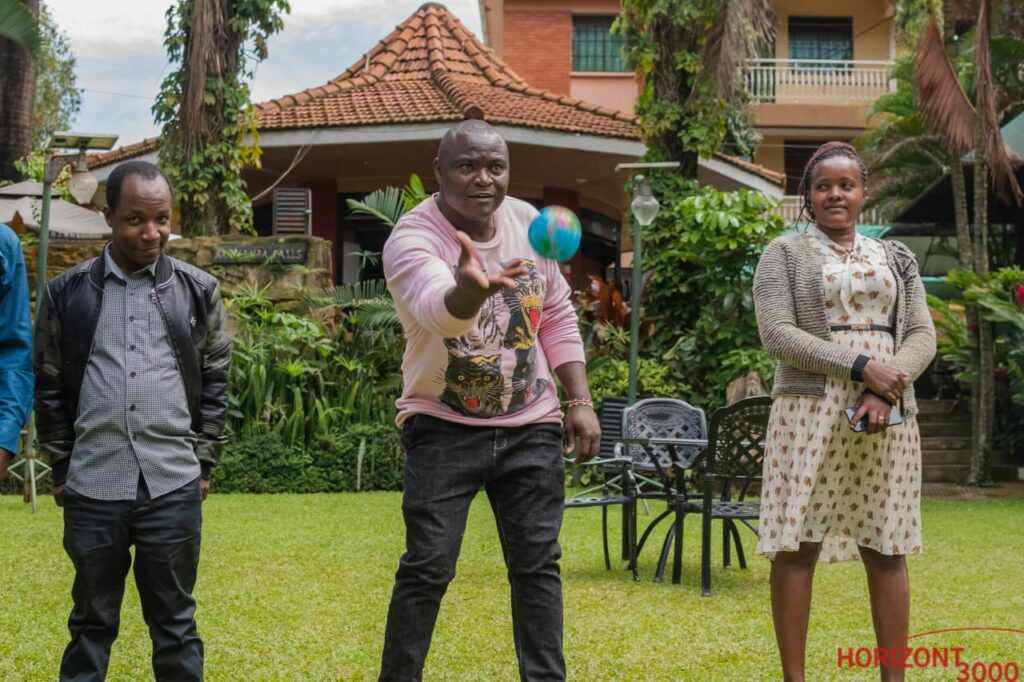
This year the Policy Dialogue East Africa project has entered its second phase. While knowledge management already played an important role in the previous period, the project now strives to follow a more integrated approach that is reflected in a knowledge management plan. Bringing together 16 partner organizations, the Human Rights-Based Approach Training offered the perfect occasion to discuss such a plan.
To keep this plan simple and applicable, the Policy Dialogue team decided to set it up according to the knowledge management cycle. The knowledge management cycle simplifies knowledge management by breaking it down to the six core processes of identifying, acquiring, developing, sharing, applying and storing knowledge. Knowledge goals provide the cycle with a framework and the continuous assessment of knowledge allows to incorporate feedback.
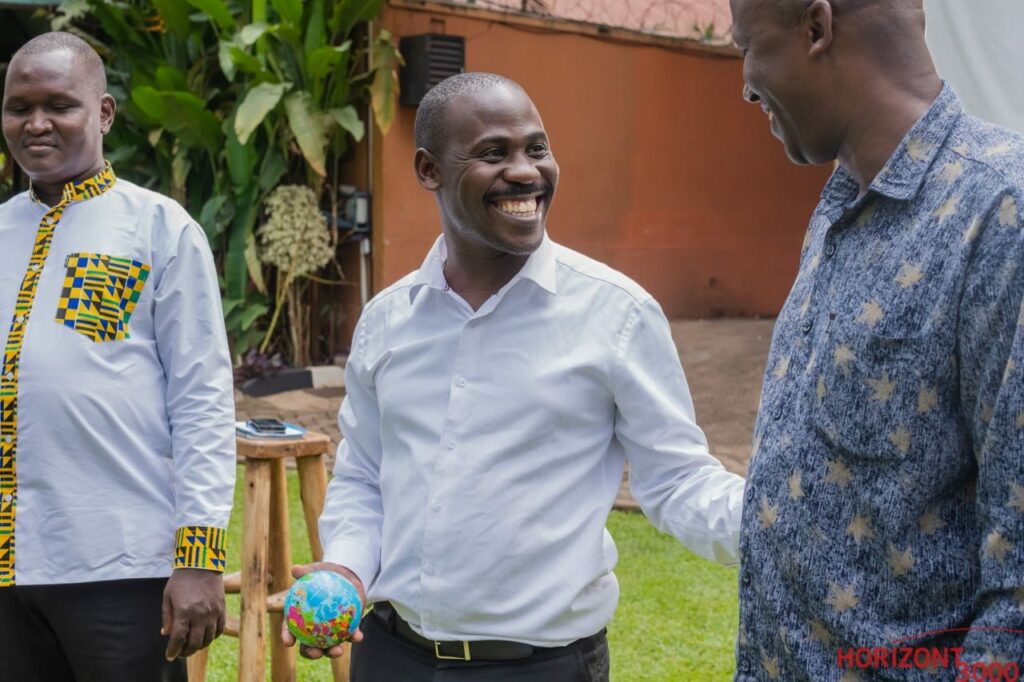
In its sum the cycle teaches us various valuable lessons that need to be understood to implement knowledge management: Thanks to its shape it illustrates that knowledge management is an ongoing effort, that can never be completed. This is the case because the world around us, which constitutes the context of our work, is constantly changing. Thus, the knowledge we are using today might be outdated in a few weeks from now. Of course, we don’t have to reinvent the wheel all the time but we have to adapt it to the given circumstances. Looking at the core processes of the cycle helps us to realize that knowledge management is nothing that we are supposed to do on top but something that already is an integral part of our work.
In our professional life we constantly acquire new knowledge and it is just impossible to think of an office where knowledge is not shared and stored. Moreover, the amount of lines reveals that the core processes and the activities that fall under them are interconnected. Every knowledge management activity has a purpose that partly stems from this interconnectedness: We hold a training to learn from it, but the training only serves its full purpose when the acquired knowledge is also put to use. Finally, the scope of the core processes indicates that knowledge management is nothing that a single knowledge manager can take care of – on the contrary it is a common task that requests each and everyone’s commitment.
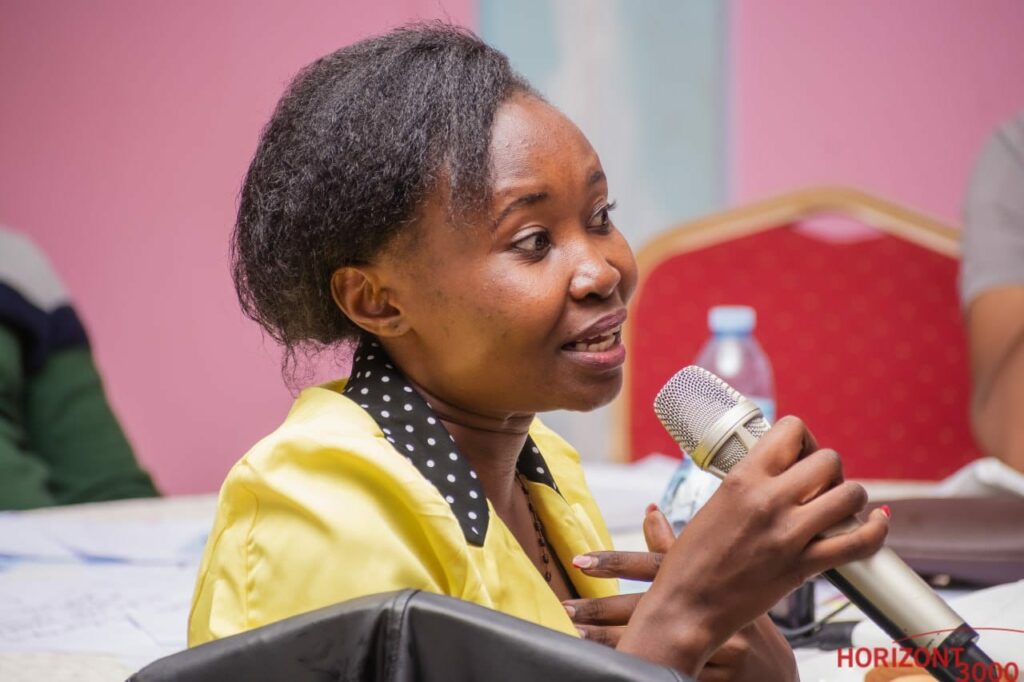
However, there are also certain aspects that we have to keep in mind while working with the knowledge management cycle. First of all, the steps of the cycle don’t necessarily have to be aligned in this way. For example, we can apply knowledge before we share it or we can store knowledge that we have just acquired. Secondly, some knowledge management activities and tools can be utilized under different core processes as they serve multiple purposes. The Policy Dialogue Manual for example is a way to store knowledge as much as it is a tool for new partners to acquire knowledge.
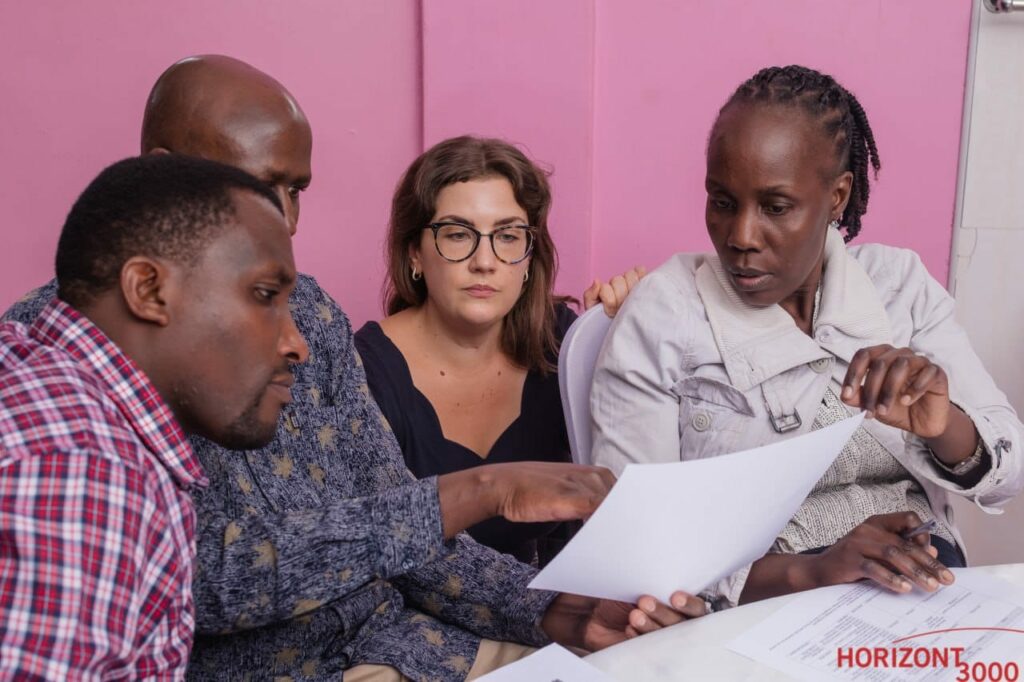
Being aware of what has just been outlined the Policy Dialogue team drafted a plan that allocates the activities and tools that are foreseen in the project to the core processes of the knowledge management cycle. To ensure the plan’s practical feasibility the team further noted down the frequency and next implementation of each activity and went on to divide every activity into several specific tasks which were then assigned to different parties involved.
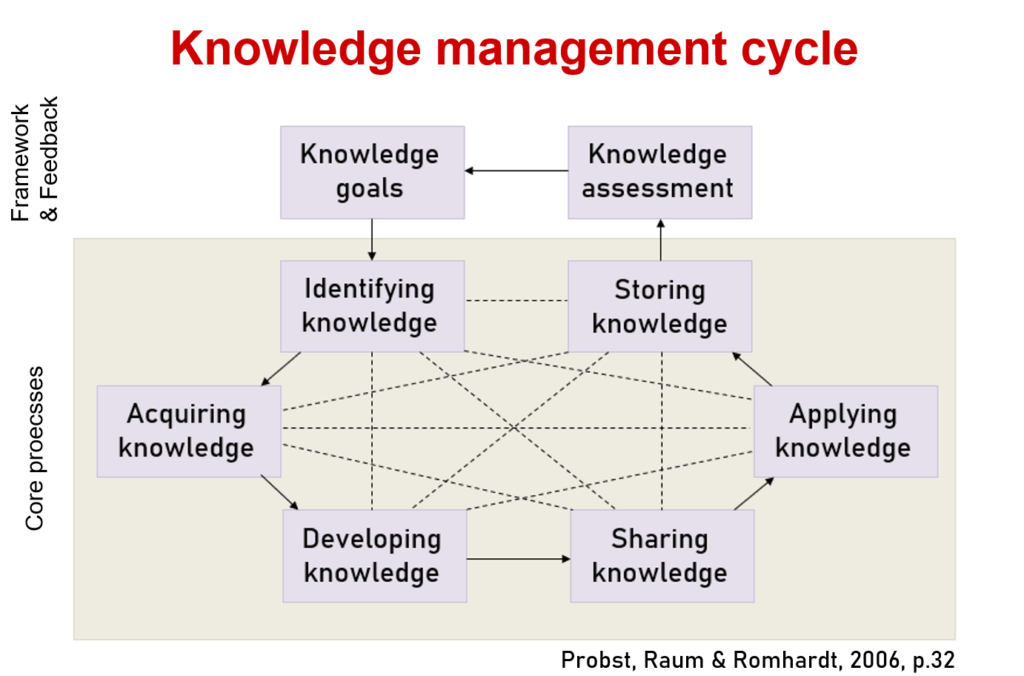
During the training a whole session was allocated to discussing and working on the draft plan. The session started off with a short brainstorming exercise on knowledge management. To make sure the plan and its background is understood the knowledge management cycle was introduced before the draft was presented. The major part of the session was then made up by a group exercise during which each group engaged with one core process and the respective activities. They were asked to think about what they need to fulfil the specific tasks they are responsible for and about further activities that could be added in case the envisioned activities are not sufficient. Moreover, the group exercise encouraged the participants to reflect on the knowledge management activities that are implemented by their own organization.
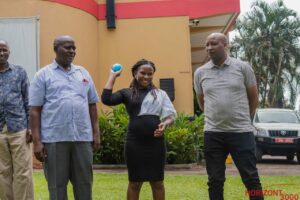
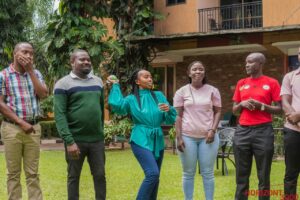
The exercise stimulated vivid discussions and brought about results that are now being integrated into the plan. Participants enriched the specific tasks with more details and suggested topics for further trainings and mentoring such as the use of technology in or the integration of gender issues into policy dialogue. They proposed that some activities should be executed more often and made clear that certain activities require adequate budget and time. Moreover, the partners stated that they not only want to be provided with precise guidelines for but also with specific objectives of the tasks to be undertaken. In addition, they elaborated how knowledge management processes could be further improved in their own organizations.